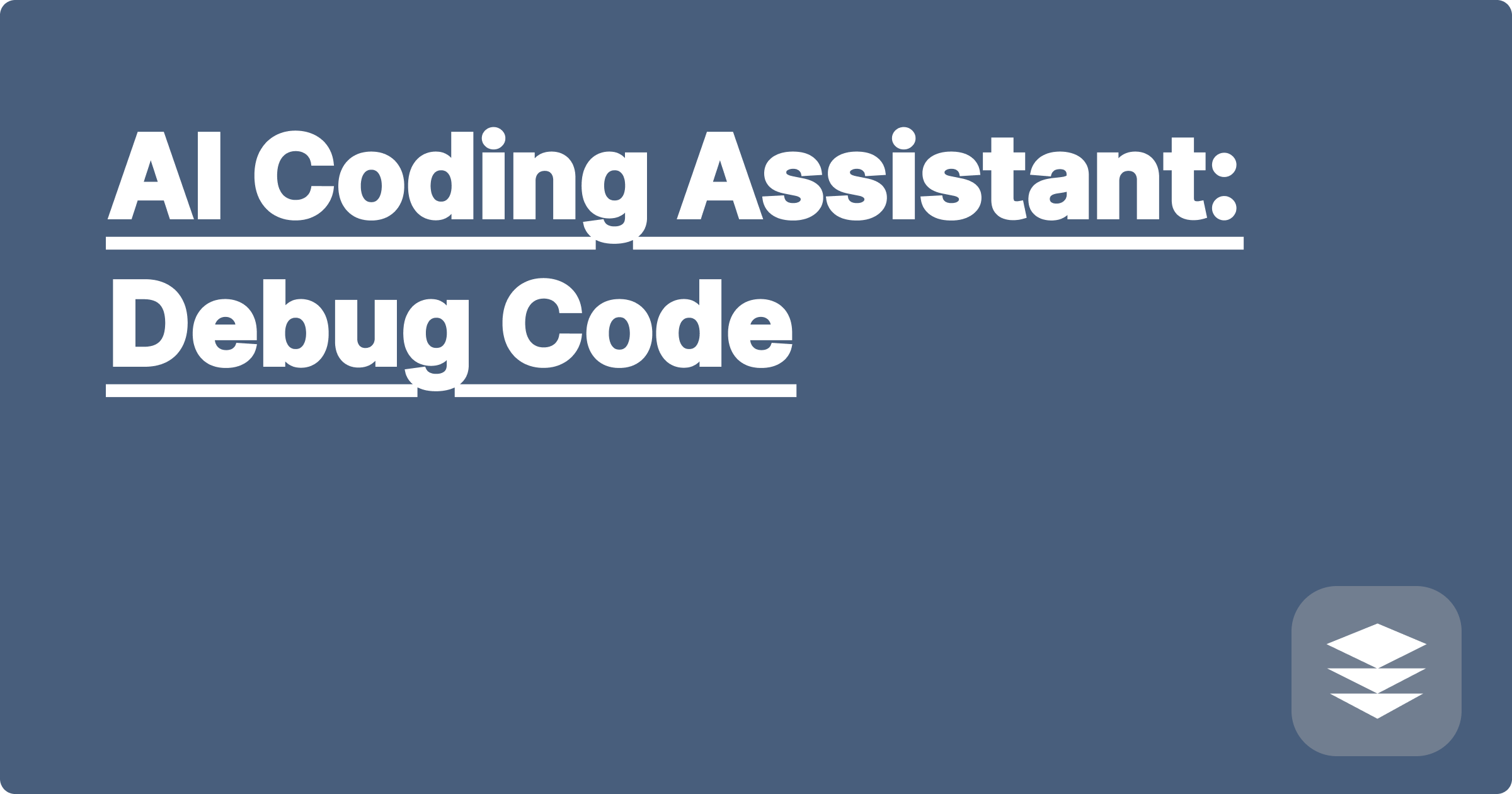
STEM fields often present complex coding challenges that can be time-consuming and frustrating to resolve. Debugging, in particular, can feel like searching for a needle in a haystack, especially when dealing with intricate algorithms or large datasets. Fortunately, the rise of artificial intelligence offers new and powerful tools to assist STEM students and researchers in overcoming these coding hurdles. AI coding assistants can significantly streamline the debugging process, allowing for more efficient and effective problem-solving.
For STEM students and researchers, effective debugging is crucial. It's not just about getting code to run; it's about understanding the underlying logic and ensuring accuracy. AI coding assistants can be invaluable in this process, providing insights, identifying errors, and even suggesting solutions. This can lead to a deeper understanding of coding principles and accelerate the learning process. Moreover, in research settings, these tools can free up valuable time and resources, allowing researchers to focus on the bigger picture and advance their work more quickly.
Debugging is a fundamental aspect of software development and scientific computing. It involves identifying and correcting errors, or "bugs," that prevent code from functioning as intended. These errors can range from simple syntax mistakes to complex logical flaws. In STEM fields, where code often interacts with intricate mathematical models or experimental data, debugging can be particularly challenging. The complexity of the codebase, coupled with the potential for subtle errors in data handling or algorithm implementation, can make finding and fixing bugs a significant obstacle to progress. Furthermore, traditional debugging methods, such as manual inspection of code and print statements, can be tedious and inefficient, especially for large projects. This can lead to frustration and lost time, hindering both learning and research productivity.
AI coding assistants, such as ChatGPT, Claude, and Wolfram Alpha, offer a new paradigm for debugging. These tools leverage the power of machine learning to analyze code, identify potential errors, and even suggest fixes. ChatGPT and Claude, for example, can be used to understand cryptic error messages, explore alternative coding approaches, and even generate code snippets for specific debugging tasks. Wolfram Alpha excels at mathematical computations and symbolic manipulations, making it particularly useful for debugging scientific code involving complex formulas or algorithms. These AI tools can be seamlessly integrated into the debugging workflow, providing real-time assistance and accelerating the process of identifying and resolving errors.
To use an AI coding assistant for debugging, you first need to clearly define the problem. Describe the error you are encountering, including any error messages or unexpected behavior. Next, provide the relevant code snippet to the AI assistant. Ensure that the code is properly formatted and includes any necessary context, such as variable definitions or input data. Then, ask the AI assistant for assistance in debugging the code. You can ask specific questions, such as "What is causing this error?" or "How can I fix this bug?" Alternatively, you can simply provide the code and error message and ask for general debugging assistance. The AI assistant will then analyze the code and provide insights, suggestions, and potential solutions. Carefully review the AI's output, considering its suggestions and applying them to your code as appropriate. Remember that the AI assistant is a tool, and its suggestions may not always be perfect. Critical thinking and careful evaluation are still essential.
Consider a scenario where a Python script is throwing a "TypeError: unsupported operand type(s) for +: 'int' and 'str'" error. You could provide ChatGPT with the code snippet and error message. ChatGPT might respond by explaining that the error occurs because you're trying to add an integer and a string together, which is not allowed in Python. It might then suggest converting the string to an integer using the int() function before performing the addition. Alternatively, suppose you are working on a physics simulation and encounter unexpected results. You could provide Wolfram Alpha with the relevant equations and parameters. Wolfram Alpha might then perform symbolic calculations to identify potential errors in your formulas or suggest alternative approaches for solving the equations.
Another example could involve debugging a complex algorithm implemented in C++. You can paste the code segment into Claude and describe the unexpected behavior. Claude can then analyze the code, potentially identifying logical flaws or suggesting alternative implementations that might resolve the issue. These examples showcase how AI coding assistants can be applied across different programming languages and STEM disciplines to effectively troubleshoot and resolve coding errors.
To maximize the benefits of AI coding assistants in STEM education and research, consider several strategies. First, develop a strong understanding of fundamental coding principles. AI tools are most effective when used in conjunction with a solid foundation in programming. Second, learn how to effectively communicate with AI assistants. Clearly articulating the problem and asking specific questions will yield more helpful responses. Third, critically evaluate the suggestions provided by AI tools. These tools are not infallible, and their suggestions should always be carefully considered and tested. Finally, explore the different AI coding assistants available and find the ones that best suit your needs and workflow. Each tool has its strengths and weaknesses, and experimenting with different options can help you identify the most effective tools for your specific tasks.
Concluding, AI coding assistants offer a powerful new approach to debugging in STEM fields. By leveraging these tools, students and researchers can overcome coding challenges more efficiently, deepen their understanding of programming principles, and accelerate their academic and research progress. Start exploring these tools today and discover how they can transform your coding workflow. Experiment with different AI coding assistants, practice formulating clear and concise queries, and integrate these tools into your daily coding practice. Embrace the potential of AI to enhance your STEM skills and propel your academic and research endeavors forward.
Ace STEM Exams: AI Study Planner
AI for Lab Data: Analyze Faster
STEM Prep: AI-Powered Flashcards
AI Coding Assistant: Debug Code
Engineering AI: Design & Simulate